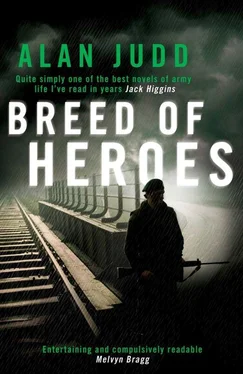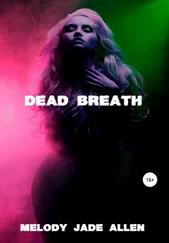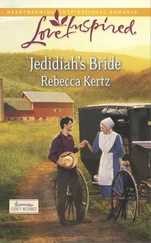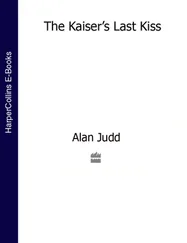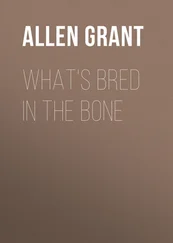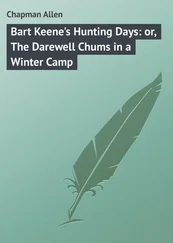Yet the time passed quickly, perhaps because it was broken up. Even though the same activities were repeated day and night their order varied and the time of doing them varied. The working day, or night, was about seventeen hours, seven days a week; sleep was irregular and frequently disturbed; anyone who had a few minutes with nothing to do simply closed his eyes and usually experienced a rapid succession of very vivid dreams from which he could nevertheless emerge immediately because he never fully ceased to hear what was going on around him. Duties and watches were simply got through; no one thought further ahead than the end of the next one; tomorrow was irrelevant to today and yet it all would end sometime, and so the present was made endurable.
Henry Sandy came one day with a complicated form. He was supposed to compile a medical report on the working and living conditions of the soldiers. At a time when everyone looked pale and tired, he looked still worse.
‘You look like death warmed up,’ said Edward.
Henry proffered cigarettes to the smokers. ‘Shagged out,’ he explained. Henry and his medical team lived at the military hospital, where there was an abundance of nurses. The kindest interpretation of their behaviour, which he himself provided, was that his and his team’s debaucheries were a vicarious acting-out of the frustrated desires of the rest of the battalion.
‘Wouldn’t be so bad if you didn’t make it sound as though you didn’t enjoy it,’ said Chatsworth. ‘You make it sound like a duty.’
‘That’s what it’s becoming,’ said Henry. ‘I’m not sure I do enjoy it. I don’t think I do really. I think I do it just to see if I’m right in thinking I’m not going to enjoy it. And I am.’
‘Why keep on doing it?’
‘In case I’m wrong, I s’pose. You never know your luck.’ He grinned and then giggled. ‘That’s not really why. I don’t know why. I just do it whenever I can. Perhaps I’m too emotionally immature to say no, though Christ knows there’s little enough emotion involved.’
‘Well, I lack emotional maturity as well,’ said Chatsworth. ‘And I also lack the opportunity to be immature. What about me and Charles coming out one evening if we could fiddle it? Reporting sick or something.’
‘Great. Whenever you like. I can easily lay on a couple of nurses. I’m not sure that Charles really wants to, though.’
‘’Course he does. He’s just so emotionally mature that he’s frightened to admit it.’
Henry spent about an hour going over the Factory, ticking boxes on his form. When he returned to the ops room he said: ‘It’s unfit for human habitation. Too little light, poor ventilation, inadequate washing and toilet facilities, too much noise, too many people and the cookhouse is illegal.’
‘Could’ve told you that on the phone,’ said Edward. ‘Fit for soldiers, not fit for civil servants. God, imagine if they tried to send some of those fat bums in the MOD somewhere like this. Wish they would. Send a few of them out here for a week and they might spend a bit more money on the poor bloody Ackies who do their fighting for them.’ Edward, mug of tea in hand, overflowed with righteous indignation. ‘So what’s the good of your form, Henry? What’s going to happen, eh? What are they going to do about it? Sod-all, I bet.’
Henry shrugged. ‘They might close the cookhouse.’
Henry then had to inspect the sentry positions along the Peace Line, and so Charles took him round with a section that was doing a routine foot patrol. Most of the positions were incorporated into barriers that cut across streets, through which only pedestrians were allowed. Thus many streets were cut in half, Protestants on one side, Catholics on the other. The houses nearest the Peace Line, where they still stood, were usually unoccupied. They were blackened and scarred by riots and pockmarked by bullets. Flush against the wire defences at one point on the Catholic side, a row of new houses had been built to replace the dozen or so that had been burnt in that area during the early riots. They stretched right across a broad street with their blank rear walls facing the Protestants. Children played against the barriers for most of the day, whether there was school or not.
‘Glasgow’s the only other place I know that could end up like this,’ said Henry. ‘Peace on condition that you annihilate the other side. Unless we get race war in our other cities.’
‘Depressing prospect.’
‘The future always is. In our time, anyway. In the last century people looked forward to this one as a time when everything would be better. I suppose many things are. But we’re not so optimistic about the next century, are we? If anything, we think of it as a time of diminishing humanity.’
They strolled along the pavement with the escorting section spread out in tactical formation on either side of the road. Henry seemed completely relaxed but for Charles the demands of the present easily outweighed those of the future. He was constantly looking for sniping positions in windows, alleyways and blocked-up doorways. ‘Perhaps we’ll be as wrong about the next century as others were about ours,’ he said. He had noticed in himself before that states of nervous watchfulness encouraged opinions that were more reassuring than realistic. It was as though he was thereby staking a claim in a future he was not sure of reaching.
Henry, though, was apparently oblivious to his surroundings. ‘I don’t believe you’re that much of an optimist, Charles. Beneath that cool exterior a cold heart freezes. Things generally get worse, don’t you agree?’
‘It depends upon the things, which means I don’t agree. Some things get worse, some get better, some don’t change. Generalisations are difficult, if you’ll forgive that one.’
‘They’re also the only things worth saying. You could record your sordid particulars for the rest of your life but it’s all pointless if you’re not prepared to generalise on the basis of it.’
Charles smiled. ‘Some philosophers argue that the general comes first and that we fit the particulars into it.’
‘Some philosophers are arse over tit,’ said Henry. ‘I was being serious.’
‘What makes you think I wasn’t?’
‘You? You never are, you bugger. You’re always on the fence. Serve you right if you get piles.’
Henry found that all the sentry positions lacked everything except ventilation. ‘Makes me appreciate living in the hospital,’ he said as they clambered down from one sandbagged, corrugated tower. ‘It has its problems, of course — too many women — but it is comfortable. It’s a funny thing about the women. I’m becoming utterly depraved and heartless. I just keep on doing it with as many as possible to see how long it’s going to last. There must come a time when I shall reach the bottom and be able to sink no lower, but each time I think I’ve got there I find I can wriggle down a bit further. D’you know what I did the other evening?’ — he giggled — ‘but I won’t tell you, I’m still ashamed about it. I’d like to find out if Chatsworth’s ever done it, though. But the trouble is, after a while, you get so that you can’t think about anything else. It infects every part of your life. Don’t you find that?’
‘It’s the other way round with me. If I’m starved of women I’m more inclined to dwell on them.’
‘If I’m starved of them I just sort of forget. I become asexual until I’m with one again, and then I just want to jump on her, stoat-like, without a word, anonymously.’
They were on the Protestant side now, where the kerbstones were painted red, white and blue and the slogans were painted neatly on the roads and walls. Union Jacks hung from some of the windows, and were occasionally strung across the street from house to house. Two very small boys with very dirty faces ran up, proffering ragged bits of tartan. ‘Have ye killed any Fenians, mister?’ asked one. ‘We’ll help ye kill ’em. We’ll help ye kill the Fenians.’
Читать дальше
